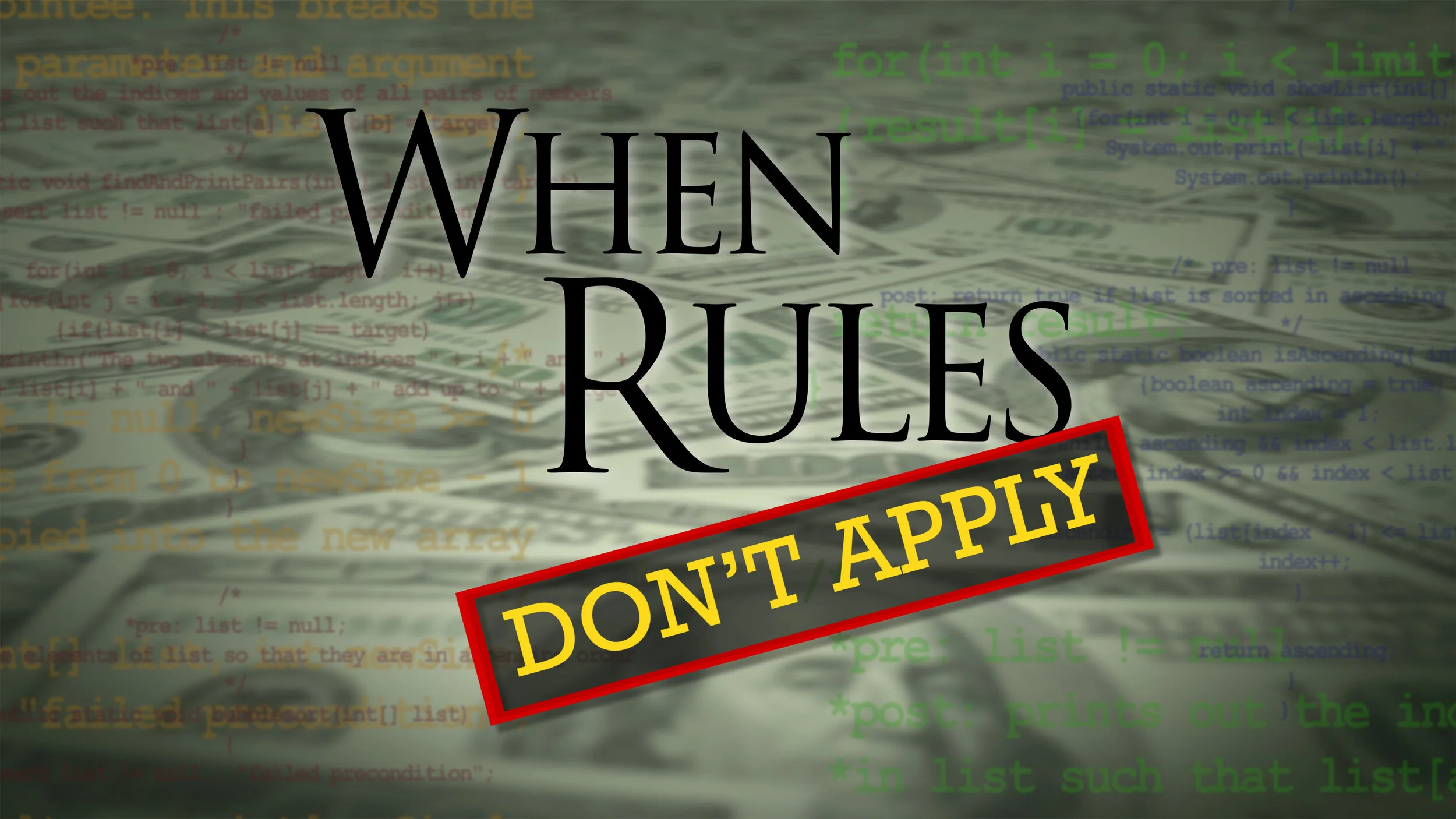Case Study: When Rules Don’t Apply
www.whenrulesdontapply.com
Director: David Donnenfield
Producer: Kevin White
Top executives of leading Silicon Valley tech companies secretly agreed among themselves not to hire each other’s employees, thereby restricting wages and job opportunities for their employees. Government investigators discovered the conspiracy and brought charges against the companies, using antitrust law to protect labor rights. Then, a public interest law firm also won a landmark class action settlement.
As part of the settlement, a fund was established for outreach and education. Filmmakers Collaborative was awarded a grant from the California Attorney General’s office to create When Rules Don’t Apply.
Goal:
Educate workers about the wage suppression/no-poach practices that occurred in the case and how antitrust law can be used to protect labor rights.
Strategy:
Raise awareness by creating a comprehensive education campaign that includes a 28-minute film, three short discussion videos, and a resource rich website. Distribute the materials online for free to increase visibility for the core target audience of tech workers.
Audience:
Tech workers, business executives, human resource professionals, legal professionals, union organizers, computer science/law/business students, general public.
Approach:
The film combined interviews from experts in different areas to show perspectives of how this case had significance ranging from law to HR and more. The short videos were supplementary pieces that tackled some of the questions the film brings up, but in a quicker format. The website housed resources and more information about the case and antitrust law.
In this campaign, we created media that was an accessible way to reach audiences but also had the breadth of knowledge to be informative on a deeper level. By threading together numerous perspectives instead of limiting the focus of the film, we were able to provide value and relevance to our identified audiences. The content provided an educational opportunity for both working professionals and college students.
Impact:
The film was circulated online and generated conversation on Reddit among the core audience of tech workers. The viewers ranged from people who had never heard of the case, to those who were familiar with it or even had their own personal experiences related to it. The film was able to generate awareness about the case and served as a catalyst for discussing the importance of what occurred.
We also hosted a screening in San Francisco to bring together professionals and students in the areas of tech, law, and human resources. Connecting these groups was an impactful way to educate the target audience who may find themselves working for companies like those exhibited in the case.
The film continues to be an educational resource that can be viewed and shared among communities and classrooms. To date, it has been viewed over 20,000 times online.

